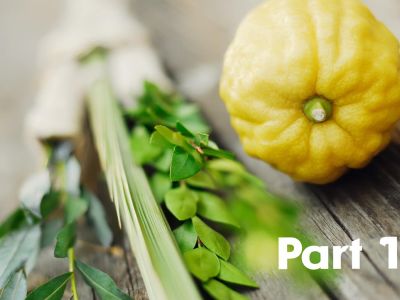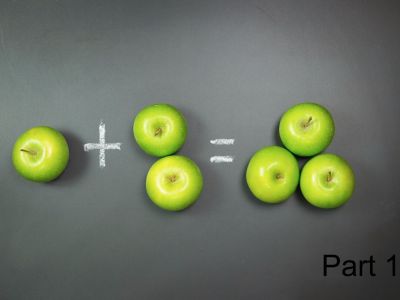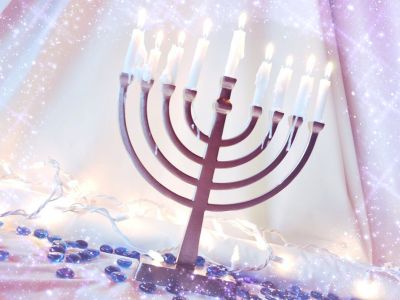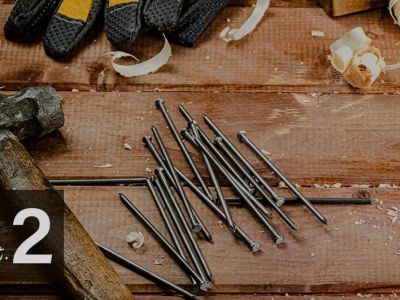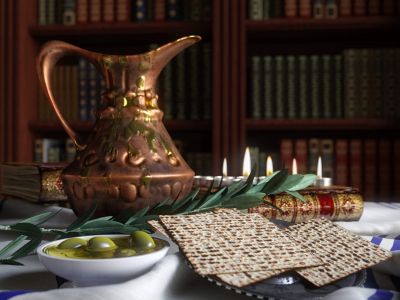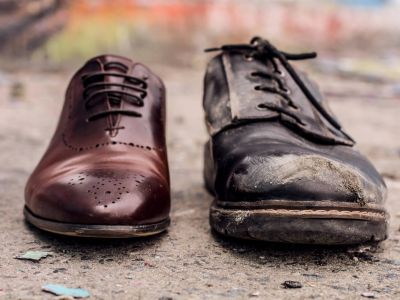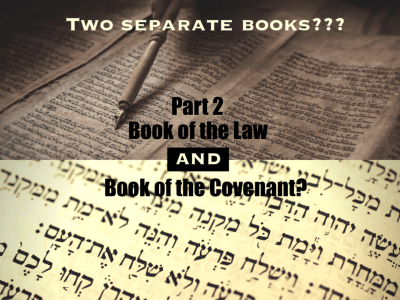L.E.A.D. – The Cleansing of the Leper
L.E.A.D. – The Cleansing of the Leper
The Cleansing of the Leper Reveals the Gospel
To be in communion with God and for Him to dwell with us, being saved, or simply believing in Him is just not enough (James 2:19); there must be a state of cleanness and spiritual purity for the Holy Spirit to reside in us. Many of the laws in the Torah are related to the things that individuals of Israel must do to ensure that they remained in a state that would not profane the camp so that God’s Shekinah presence could continue to dwell with them. More than simply being about living in a form that would not profane the purity of the temple where God’s presence dwells, it is about showing God that we understand that His instructions are not just to ‘tick a box but to set the boundaries and conditions within the community that will both allow His presence to remain there and also create a more robust, more positive social environment between the people of that community.
It is important to remember that cleanness is not a permanent state and that uncleanness can be caused in many different ways, some through inevitable natural occurrences, some through our choices and actions, such as those things that cause what the Torah calls ‘tsar’s’. Tsara’at is often translated as ‘leprosy’ but is not simply the physical condition we associate with leprosy today, also known as Hansen’s Disease; it goes much deeper. Tsara’at is a spiritual condition that manifests physically, stemming from troublesome personal attitudes and sin such as ‘lashon hara,’ literally ‘evil tongue,’ which incorporates things such as slander, gossip, bearing false witness, or other similar issues related to how someone talks to or about others. Unlike Hansen’s Disease, however, tsara’at could be cleansed, allowing the one who had been afflicted by this ailment (known as a ‘metzorah’ in Hebrew) to return to their place amongst the people after following the procedure for restoration and healing outlined by the Torah, as detailed in Leviticus 14. Although Tsara’at does not manifest in the same manner today, this lesson still has a profound significance to our lives as people of God and followers of the Messiah.
Looking at the details of the ritual for cleansing a metzorah, we can see many parallels with our own lives today as followers of the Messiah and what we must do to be cleansed of our own tsara’at. Firstly we need to recognize that the metzorah, the leper, represents us when we are stained with sin, separated from the presence of God with our garments stained and polluted. When we are defiled, just as it was for the lepers who had to leave the camp for seven days, we cannot remain in God’s presence while we carry the dirt of sin on us. Just as the priest would leave the camp to examine the metzorah and declare them either clean or unclean (in which case, they would need to remain outside of the base for a further seven days), Yeshua, our high priest, meets us outside of the camp, having died and become sin for us, cleaning our ‘stained garments’ with His precious blood.
Yeshua is not just represented by the figure of the priest, however. Following the declaration that someone was now clean, the sacrifice to be offered on behalf of that person was comprised of several elements, all represented in one way or another, the work of the Messiah. Two birds, cedar wood, a clay pot containing fresh water, scarlet yarn, and hyssop were to be brought to the priest, who would then kill one of the birds over the pot containing the fresh water. Following this, the live bird, along with the cedar wood, the scarlet yarn, and the hyssop, would be dipped in the blood of the slain bird, and the person to be cleansed would have the blood sprinkled on them seven times, after which the live bird would be released in an open field.
The clay pot represents this earth realm, the cedar symbolizing the cross-beam of Yeshua’s cross (strongly believed to have been made of cedar wood), the scarlet yarn foreshadowing the robe that would be placed on Messiah during His humiliation (Matthew 27:27-28), the hyssop also being used by the Roman soldiers during the crucifixion when they affixed the sponge soaked in the sour wine to a hyssop branch to lift it to Yeshua’s mouth (John 19:28-29). The slain bird is symbolic of Yeshua’s sacrifice, and the one released in the open field represents us, set free from the bonds of sin and free to fly up to the heavens. The remaining elements of this sacrifice, the blood, and the freshwater symbolize both the mixture of blood and water that came from Yeshua’s side after being pierced with a spear (John 19:34) and also our cleansing, having been washed by the water of the Word and cleansed by the blood of the Lamb (John 7:38).
This is not the end of the process. However, there are several things the ones who had been leprous must do themselves to finalize the cleansing and render themselves worthy of a place in the camp. To be considered ceremonially clean, they must wash their clothes, shave off the entirety of their body hair and then bathe in water, only then being allowed to return to the camp. Still, even after this, they must remain outside their tent for seven days. The physical reasons for this are relatively straightforward, especially considering that tsara’at could spread to clothes, furnishings, and the house itself and thus was highly contagious to other people too (an important lesson about the nature of the effects of personal sin on others). Still, there is a profound spiritual lesson in these things too. Just as shaving the body hair removed all places where the tsar’s could remain hidden and so removed the possibility of the disease returning, we are to remove all forms of temptation and sin from our lives, anything that could cause defilement and lead to a separation from God (Matthew 5:29-30, Mark 9:43-47). Remaining outside the tent ensured that, physically, there were no residual effects of the disease that would be brought back into the residence. Still, most importantly, it signified spiritually that although the way had been made for them to return to the camp, their new cleanness must be put into action and proven first, just as our faith, following our healing and redemption, must be made alive by our deeds (James 2:26).
 The final part of the process occurred on the eighth day, the first day of the individual’s new state of cleanness, and involved bringing several offerings: an offering for guilt, sin, a burnt offering, a grain offering, and some oil. In amongst these offerings is the ordinance that the priest must take some of the blood and put it on the right ear-lobe, the right thumb, and the big toe of the right foot of the one being cleansed, following which the oil will be sprinkled seven times before the Lord and then, like the blood, put on the individual’s right ear-lobe, right thumb, and right big toe. The placement of the blood followed by the oil symbolizes the spiritual cleansing brought by the blood of sacrifice and the anointing by the Spirit of God. Still, we must consider why the blood and oil were placed in those three locations on the body. The ear represents ‘listening’ and that following the cleansing and anointing, God will be listened to and heeded, bringing that person back in line with the ‘greatest commandment,’ the Shema (Deuteronomy 6:4-5, Mark 12:28-34). The thumb, as well as being a physical element of the human body that elevates us above the animal kingdom, represents authority and the strength of what we do, our ability to ‘hold and grasp’ things. The blood and oil symbolize that we can do nothing without Messiah, whose blood cleansed us, nor the Spirit, the ‘anointing oil’ that guides us and keeps us connected to God. Finally, due to its importance for balance and our ability to walk, the big toe is symbolic of stability, so again the blood and oil are a reminder that it is only walking in the ways of God, through His Spirit and with our faith in Messiah, that we have the strength and guidance to continue on this path, remain worthy of our place in the Kingdom and walk upright as an example to others of the righteousness of God’s ways.
The final part of the process occurred on the eighth day, the first day of the individual’s new state of cleanness, and involved bringing several offerings: an offering for guilt, sin, a burnt offering, a grain offering, and some oil. In amongst these offerings is the ordinance that the priest must take some of the blood and put it on the right ear-lobe, the right thumb, and the big toe of the right foot of the one being cleansed, following which the oil will be sprinkled seven times before the Lord and then, like the blood, put on the individual’s right ear-lobe, right thumb, and right big toe. The placement of the blood followed by the oil symbolizes the spiritual cleansing brought by the blood of sacrifice and the anointing by the Spirit of God. Still, we must consider why the blood and oil were placed in those three locations on the body. The ear represents ‘listening’ and that following the cleansing and anointing, God will be listened to and heeded, bringing that person back in line with the ‘greatest commandment,’ the Shema (Deuteronomy 6:4-5, Mark 12:28-34). The thumb, as well as being a physical element of the human body that elevates us above the animal kingdom, represents authority and the strength of what we do, our ability to ‘hold and grasp’ things. The blood and oil symbolize that we can do nothing without Messiah, whose blood cleansed us, nor the Spirit, the ‘anointing oil’ that guides us and keeps us connected to God. Finally, due to its importance for balance and our ability to walk, the big toe is symbolic of stability, so again the blood and oil are a reminder that it is only walking in the ways of God, through His Spirit and with our faith in Messiah, that we have the strength and guidance to continue on this path, remain worthy of our place in the Kingdom and walk upright as an example to others of the righteousness of God’s ways.
Herein lies a word of caution: if we must take care that our ‘tsara’at’ does not affect the rest of our lives, we must also be careful with the company we keep as their sin; their defilements could contaminate us. The friendships our children engage in must be positive relationships because the damage caused by unequal yoking at this stage in life can be incredibly destructive later on in the adult years. As much as we need to recognize this in our own lives, we must make sure that the children are safe in this manner. Coming into contact with something dirty will not make the other object clean; instead, it will become dirty. Similarly, if we allow unclean people into our lives, we too are setting ourselves up to be defiled; for example, spending a significant amount of time with people who speak in a vulgar manner will gradually affect how much vulgarity we permit in our speech. This is bad enough, but there is a profound risk of even worse defilements being allowed into our lives. This is hammered home throughout the Scriptures, in places such as Proverbs 13:20, Proverbs 25:26, 1 Corinthians 5:11, 1 Corinthians 15:33, 2 Corinthians 6:14, and 1 John 2:15-17, amongst others.
Just as the living bird was wrapped in the cedar, hyssop, and scarlet, immersed in the blood of the sacrificed bird, then washed in the living water and released to new life and freedom, we must also be crucified with our Messiah. We must be immersed, baptized in the blood of the lamb and the living water of the Word, to be set free from the law of sin and death (Matthew 16:24, Romans 6:3, Galatians 2:20). If we are to be freed from the curse of death brought on by our immorality and impurity, then we must live in faith and obedience to Adonai and His instructions for righteousness; we must put our trust in Yeshua and walk as He walked (1 John 2:6) and choosing our company wisely, so that, having been cleansed by Messiah from the defilement of our sin, we remain clean. Of course, we are human and thus likely to slip, doing things by mistake that will make us unclean (Romans 3:23). Still, we do not want to go so far as to earn the wages of sin forever outside of the camp and given over to death (Romans 6:23). We know what we must do to be forgiven and cleansed, knowing that to remain in the presence of God we must follow His procedures, living in obedience to His ways, putting our faith in Messiah and walking as He walked. Being able to recognize our uncleanness and so take the necessary steps to apply the blood of Yeshua to our lives, following it up with actions that show a faith alive and well, will ensure that, even if we have to leave the camp for a time due to our choices, we know without a doubt that we can be made clean again to come back into fellowship with our Father and our fellow Israelites.
Shalom,
Jim Staley




